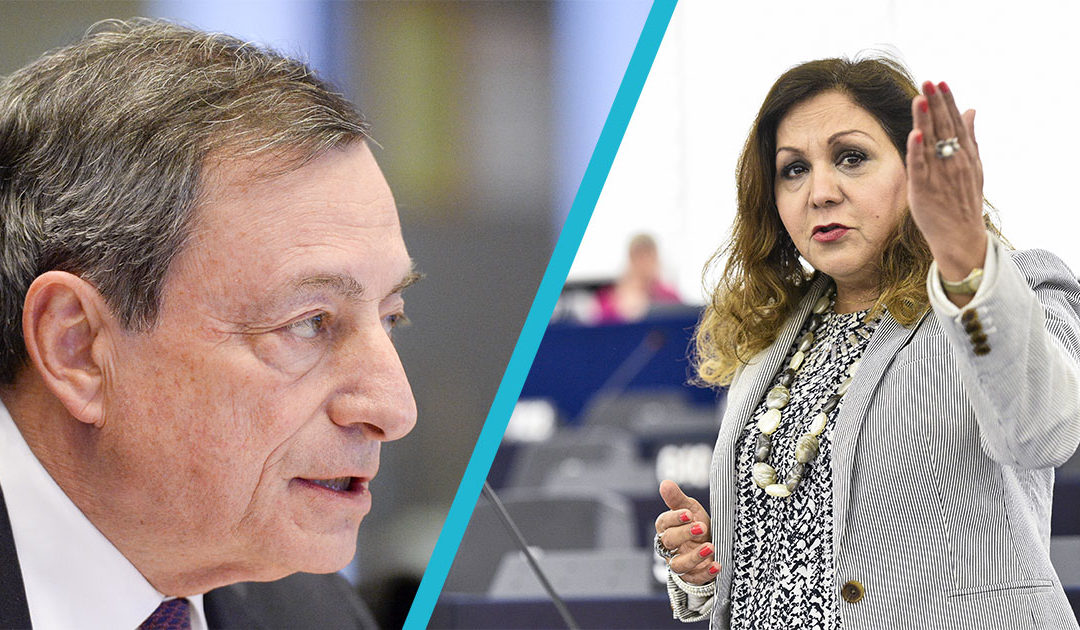Under continuous criticism from NGOs and the European Parliament, the European Central Bank’s President said it will “certainly look” into the environmental impact of its corporate quantitative easing programme. But will the ECB put words into action?
Awareness is growing in Europe that climate change is one of the most, if not the most, severe issue that humanity is facing. Tackling this massive challenge requires a cross-cutting approach, aiming to end the business-as-usual in all economic sectors, and crucially, across all public institutions too. This is why Positive Money Europe is campaigning to ensure central banks also play their part.
A number of central banks in Europe and elsewhere are taking the lead on climate change and sustainable finance by aligning their policy tools with environmental goals. However, not only is the ECB is lagging behind, some of its ongoing policies are at odds with climate priorities.
For example, the ECB has injected 160 billion euros towards the biggest European multinationals corporations (through its CSPP programme). There are many reasons why this programme is questionable. One of them is that the ECB operates the CSPP with no consideration on the climate impact of the corporations who benefit most from it. A recent study by the Grantham Institute estimates that 62% of the ECB’s purchases of corporate bonds are concentrated towards sectors “which alone are responsible for 58.5 per cent of Eurozone area greenhouse gas emissions.”
Since 2016, Positive Money Europe has led a coalition of more than 75 NGOs in order to push the ECB to make the CSPP more climate-friendly. Committed MEPs have also supported our demands by submitting written and oral questions to Mario Draghi, the President of the ECB.
In a latest attempt to bring the issue to the attention of the ECB’s leadership, a group of socialist MEPs, including Paul Tang, Jonas Fernandez and Neena Gill, wrote a letter in March to Mario Draghi asking if the “ECB or national central banks have done an internal evaluation of the climate impact of the CSPP programme” and if it has “taken any other steps towards the incorporation of the Paris agreement into its monetary policy framework”.
Those efforts are paying off, as Mario Draghi finally conceded that the ECB should look into the issue. Answering a question from MEP Neena Gill during a hearing at the European Parliament on July 9th, the President said:
“To my knowledge, we don’t have an analysis of the impact [of QE on climate change] or of climate change considerations in [the ECB’s] program but I can certainly say that we will look into this and see what’s the effect.”.
Positive Money Europe welcomes Mario Draghi’s statement, which is another notable milestone in the shift in attitude at the ECB, after it officially recognised earlier this year that it is bound by the Paris agreement on climate change.
While it should have happened some time ago already, this change will hopefully lead the ECB to finally undertake some long-awaited introspection on its climate impact. Such an analysis is a first step towards building up internal expertise and understanding on climate change at the ECB, and allowing a more enlightened conversation on the future role of the ECB in making the financial sector contribute better to a low-carbon economy.
We will certainly keep our eyes open to make sure Draghi’s words are put to action by the ECB. You can help us too by sharing the video below on social media!

